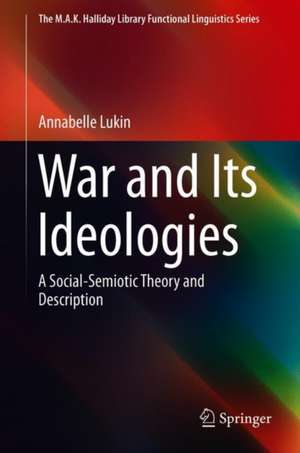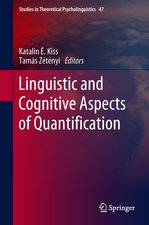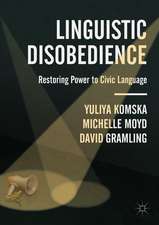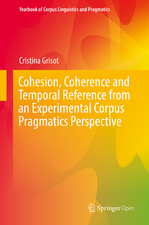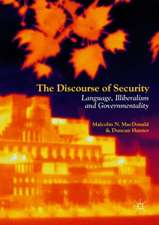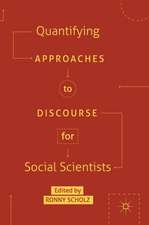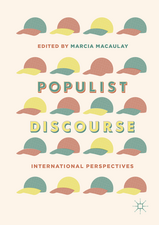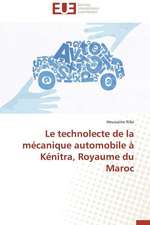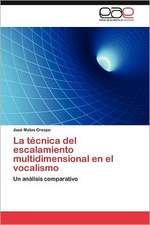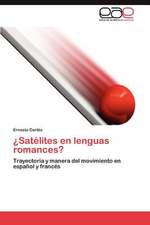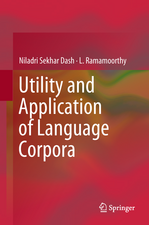War and Its Ideologies: A Social-Semiotic Theory and Description: The M.A.K. Halliday Library Functional Linguistics Series
Autor Annabelle Lukinen Limba Engleză Hardback – 20 oct 2018
| Toate formatele și edițiile | Preț | Express |
|---|---|---|
| Paperback (1) | 528.13 lei 6-8 săpt. | |
| Springer Nature Singapore – feb 2019 | 528.13 lei 6-8 săpt. | |
| Hardback (1) | 703.71 lei 6-8 săpt. | |
| Springer Nature Singapore – 20 oct 2018 | 703.71 lei 6-8 săpt. |
Din seria The M.A.K. Halliday Library Functional Linguistics Series
- 15%
 Preț: 641.85 lei
Preț: 641.85 lei - 20%
 Preț: 556.65 lei
Preț: 556.65 lei -
 Preț: 386.39 lei
Preț: 386.39 lei -
 Preț: 389.88 lei
Preț: 389.88 lei - 15%
 Preț: 636.63 lei
Preț: 636.63 lei - 15%
 Preț: 505.49 lei
Preț: 505.49 lei - 15%
 Preț: 633.02 lei
Preț: 633.02 lei - 15%
 Preț: 639.08 lei
Preț: 639.08 lei - 15%
 Preț: 645.60 lei
Preț: 645.60 lei - 15%
 Preț: 637.78 lei
Preț: 637.78 lei - 18%
 Preț: 728.60 lei
Preț: 728.60 lei - 15%
 Preț: 638.11 lei
Preț: 638.11 lei - 18%
 Preț: 790.46 lei
Preț: 790.46 lei - 18%
 Preț: 721.81 lei
Preț: 721.81 lei - 18%
 Preț: 794.70 lei
Preț: 794.70 lei
Preț: 703.71 lei
Preț vechi: 827.89 lei
-15% Nou
Puncte Express: 1056
Preț estimativ în valută:
134.70€ • 146.36$ • 113.22£
134.70€ • 146.36$ • 113.22£
Carte tipărită la comandă
Livrare economică 21 aprilie-05 mai
Preluare comenzi: 021 569.72.76
Specificații
ISBN-13: 9789811309946
ISBN-10: 9811309949
Pagini: 313
Ilustrații: XXIII, 283 p. 24 illus., 8 illus. in color.
Dimensiuni: 155 x 235 x 20 mm
Greutate: 0.61 kg
Ediția:1st ed. 2019
Editura: Springer Nature Singapore
Colecția Springer
Seria The M.A.K. Halliday Library Functional Linguistics Series
Locul publicării:Singapore, Singapore
ISBN-10: 9811309949
Pagini: 313
Ilustrații: XXIII, 283 p. 24 illus., 8 illus. in color.
Dimensiuni: 155 x 235 x 20 mm
Greutate: 0.61 kg
Ediția:1st ed. 2019
Editura: Springer Nature Singapore
Colecția Springer
Seria The M.A.K. Halliday Library Functional Linguistics Series
Locul publicării:Singapore, Singapore
Cuprins
1. Language, Linguistics and Ideology.- 2. The Quest for Meaning in 20th Century Linguistics.- 3. Ideology in a Socio-Semiotic Linguistic Theory.- 4. War and Violence: Etymology, Definitions, Frequencies, Collocations.- 5. Ideology in the Act of Meaning.- 6. A Counter-ideology: War as Violence.- 7. Configurative Rapport: The "Existential Fabric" of War.- 8. Language in the Legitimation of War.- 9. Appendices.- 10. Index.
Recenzii
“War and its ideologies: A social-semiotic theory and description represents a significant new contribution to both the theoretical and practical work in Systematic Functional Linguistics (SFL). … This book is not only a very timely and compelling addition to the SFL canon, but a worthy tribute to her friends and mentors in combining a comprehensive and accessible synthesis of the SFL conceptualisation of semiosis and ideology with a thoroughly-worked illustration of the theory in practice.” (Tom Bartlett, Functions of Language, Vol. 28 (2), 2021)
“A key strength is in the thought-provoking analytical walk-throughs of the texts under consideration (which could be seen as model analyses for students interested in carrying out corpus-based discourse analysis and/or Hallidayan analysis), and Lukin does an excellent job of laying out a range of hiding-in-plain-sight linguistic techniques that are used to justify war.” (Paul Baker, International Journal of Corpus Linguistics, Vol.25 (3), 2020)
“Given the innovative and interdisciplinary approach, this book is a great start into new discussions on the relation of language with conflict (and peace) and ideology.” (Roswitha Kersten-Pejanić, Journal of Language and Politics, Vol. 19 (5), 2020)
“A key strength is in the thought-provoking analytical walk-throughs of the texts under consideration (which could be seen as model analyses for students interested in carrying out corpus-based discourse analysis and/or Hallidayan analysis), and Lukin does an excellent job of laying out a range of hiding-in-plain-sight linguistic techniques that are used to justify war.” (Paul Baker, International Journal of Corpus Linguistics, Vol.25 (3), 2020)
“Given the innovative and interdisciplinary approach, this book is a great start into new discussions on the relation of language with conflict (and peace) and ideology.” (Roswitha Kersten-Pejanić, Journal of Language and Politics, Vol. 19 (5), 2020)
Notă biografică
Annabelle Lukin is Associate Professor of Linguistics at Macquarie University. She teaches grammar and meaning, as well as general linguistic theory. She has lectured in China and Latin America, and is a regular commentator on language matters in the Australian media.
Textul de pe ultima copertă
Ideology is so powerful it makes us believe that war is rational, despite both its brutal means and its devastating ends. The power of ideology comes from its intimate relation to language: ideology recruits all semiotic modalities, but language is its engine-room. Drawing on Halliday’s linguistic theory – in particular, his account of the “semiotic big-bang” - this book explains the latent semiotic machinery of language on which ideology depends. The book illustrates the ideological power of language through a study of perhaps the most significant and consequential of our ideologies: those that enable us to legitimate, celebrate, even venerate war, at the same time that we abhor, denounce and proscribe violence. To do so, it makes use of large multi-register corpora (including the British National Corpus), and the reporting of the 2003 invasion of Iraq by Australian, US, European, and Asian news sources. Combining detailed text analysis with corpus linguistic methods, it provides an empirical analysis showing the astonishing reach of our ideologies of war and their profoundly covert and coercive power.
Caracteristici
First fully Hallidayan account of the relations of language and ideology Unique in its combination of theory and empirical demonstration of a specific ideology Synthesises a sociological account of war with a social-semiotic theory of ideology Combines corpus linguistic methods with detailed text analysis Draws on both multi-register and register-specific corpora
